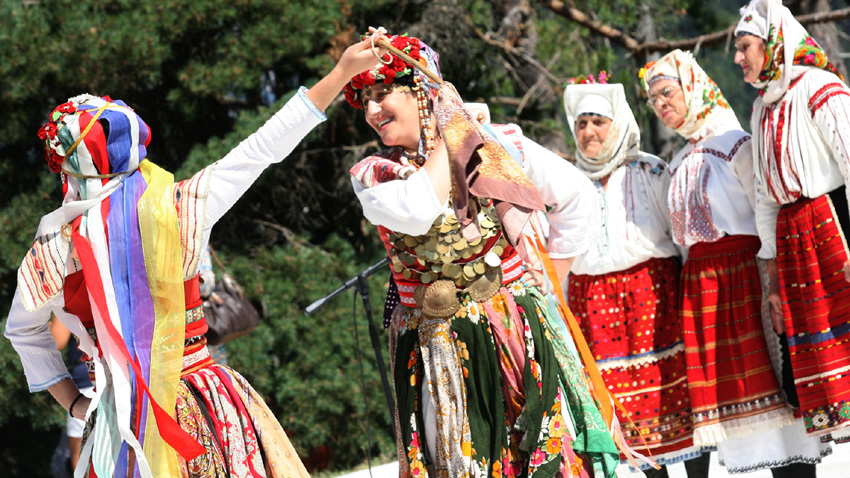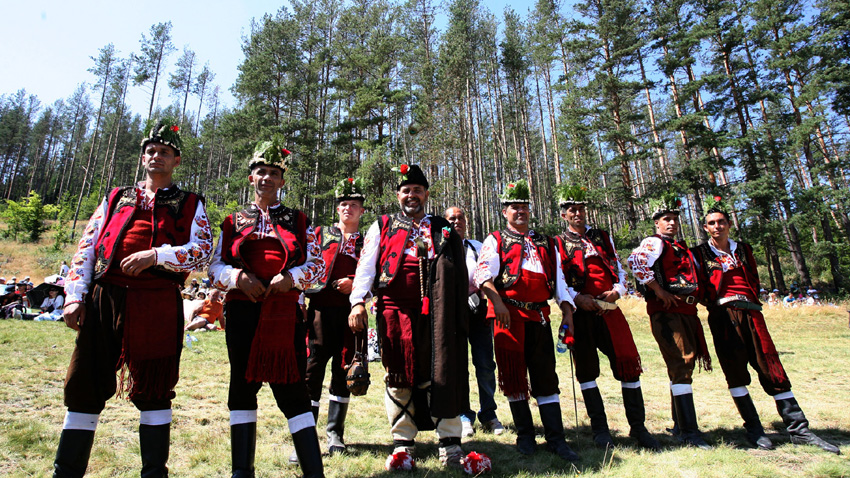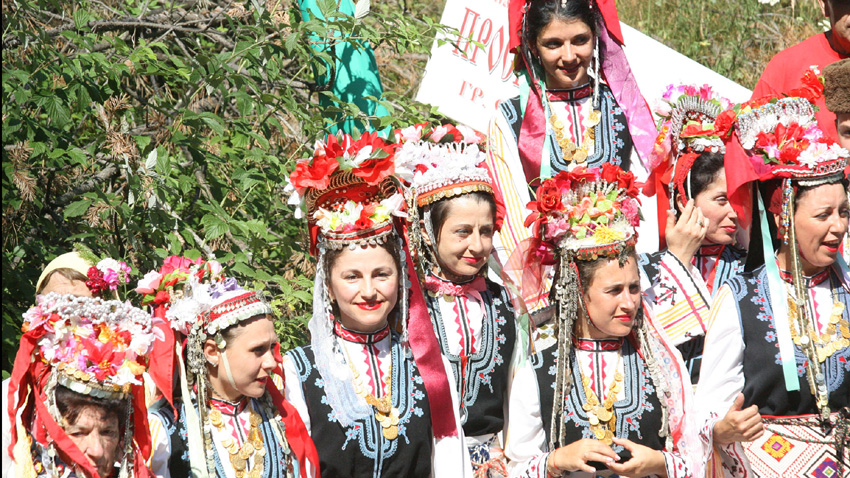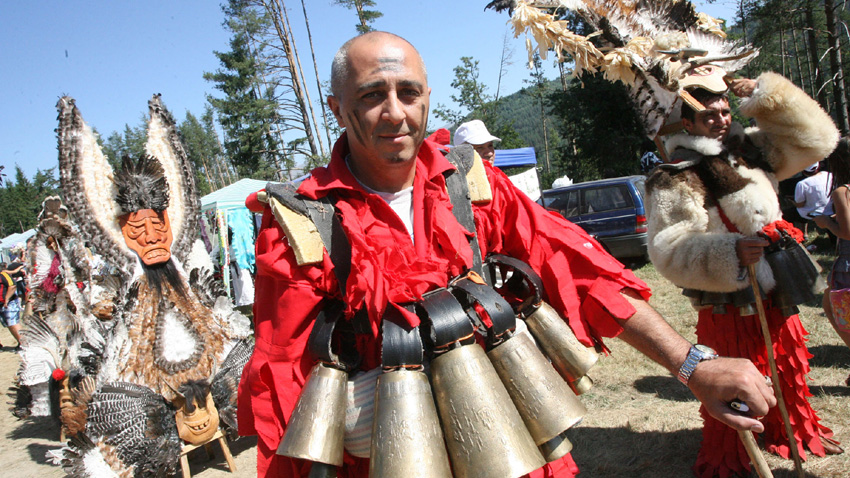“Bulgaria in our hearts”. These words on the T-shirts worn by Japanese tourists coming to the national folklore festival in Koprivshitsa are a good way to sum up the feelings of the thousands of people the event brings together once every five years on the seven meadows around of the quaint Revival-time town. The participants begin preparing very early on, because there are regional auditions to single out the amateur performers who will be given the opportunity to demonstrate their talent.
The last time the festival took place – in 2015 – there were 14,000 performers coming from all ethnographic regions of the country, as well as Bulgarians living abroad. The festival rules allow for the participation of non-nationals who perform Bulgarian folklore, an opportunity 500 performers and folklore groups from 16 countries availed themselves of. They came from all over the world – from Switzerland, Belgium, Holland, France, Great Britain, USA, the Czech Republic, Ukraine, Argentina and even the United Arab Emirates.

To them and to all Bulgarians anywhere in the world, the news that the Koprivshtitsa festival has been included in the UNESCO register of good safeguarding practices and intangible cultural heritage preservation, is a remarkable success. Much of the credit for this goes to the researchers from the Bulgarian Academy of Sciences Institute of Ethnology and Folklore Studies because of the huge amount of work they did in support of the nomination.

Here is Ass. Prof. Nikolai Vukov from the Institute with more:
“The festival has taken place 11 times since it was established in 1965. It is a forum bringing together tens of thousands of people bearing knowledge from different corners of Bulgaria – dancing, arts and crafts, oral folklore, rites and rituals. As to the news that the festival is now on the UNESCO register of good safeguarding practices and intangible cultural heritage, I would like to say that though there were some problems in the evaluation and perception of this nomination, it was judged on its own merits by the Intergovernmental Committee for the Safeguarding of the Intangible Cultural Heritage. What tipped the scales was the fact that this is a practice that goes beyond the festival itself with a sustainability of its own.”

The decision of the 11th session of the Intergovernmental Committee for the Safeguarding of the Intangible Cultural Heritage was made after difficult deliberations from which the Koprivshtitsa festival emerged as a protected good safeguarding practice.
And one more thing few people are aware of – the Rhodope song Izlel e Delyu haidutin (Rebel Delyu) performed by Valya Balkanska that was launched into space in 1977 as part of the Voyager 1 and Voyager 2 probes’ Golden Record multicultural selection of music, was in fact recorded in Koprivshtitsa. It was at the very first festival there in 1965 that two American ethnologists Ethel Raim and Martin Koenig heard the song for the first time. Since then, once every five years the town resounds with music and performers and visitors dance and sing together on stage and in the town’s streets over three days and nights. As impatient as we may be, we shall have to wait until 2020 for the dancers, singers, instrumentalists, storytellers and keepers of folklore tradition to come together again for three days of folklore magic. Plan your trip to Koprivshtitsa well ahead because last year the festival was attended by over 400,000.

English version: Milena Daynova
Photos: BGNESEvery holiday has its own flavour, its own 'clothes' and its own tunes. Christmas is no different. "Little is known about traditional Bulgarian carols and their purpose, little is said, and even the wrong things are said. But the most important thing is..
On Christmas morning the glad tidings have spread that the Son of God was born, making it a special day celebrated with a lot of festive rituals. After Christmas Eve, when families get together for a festive meal, comes Christmas. On 25 December the..
Christmas Eve, once called Budnik, Little Christmas or Neyadka, was considered part of a dark, frightening period, charged with the potential to influence the entire upcoming year. For this reason, the night before Christmas was associated with..
Everyone in Bulgaria has heard scary stories about dangerous vampires since childhood. Today, these dark spirits are familiar to us mainly from the way..

+359 2 9336 661
